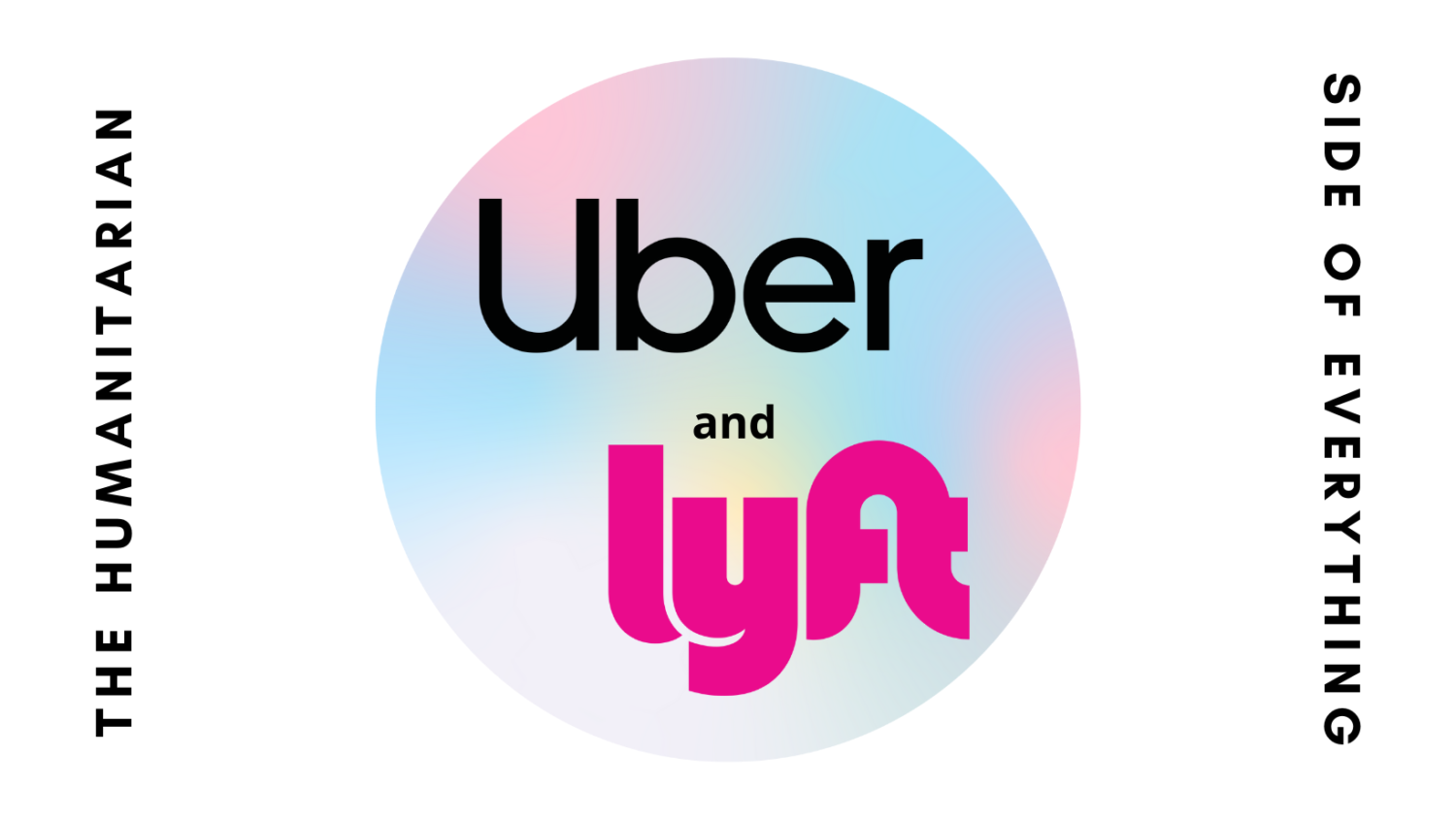It’s probably been a while since you’ve used Uber or Lyft. But there’s a humanitarian side to ridesharing apps that didn’t go away with the Covid-19 pandemic.
Uber and Lyft have undeniably changed the transportation industry by making it easier and sometimes more affordable for people to find a ride to and from wherever they need to go. Many people have become Uber drivers because they can work on their own schedule or manage with other jobs because they choose their own hours.
This has been a huge help for drivers and passengers; however, drivers for services like Lyft and Uber have not seen the payoffs that they deserve, which calls into question the corporate responsibility of these services. These companies have also lost many drivers after COVID-19, and over a year later, many drivers have not returned.
Ari’s recent article unpacks worker’s rights and other concerns with expectations placed on workers during COVID-19, and how with low wages and higher risk of infection at work, changes should have and must be made. This is also true for Uber and Lyft drivers, because they don’t receive benefits like healthcare, dental insurance or retirement plans, but work as if they are employees of these companies. Meanwhile, corporate employees receive benefits like medical, dental, and vision insurance options and a 401(k) plan. Check out this job posting for a Product Lead position at Lyft.
Drivers resent their working conditions and many are waiting for a better job opportunity rather than returning to Uber and Lyft. A primary reason for some drivers to not return is the passage of Proposition 22 in California. This bill, which Uber and Lyft donated around $205 million to support, withheld minimum wage and health benefits from drivers.
This law undoubtedly hurts drivers, causing many to leave their positions because they do not receive benefits. These companies are denying their workers rights like healthcare, paid sick time and unemployment insurance. Uber and Lyft’s entire business model is simultaneously dependent on these drivers while also depriving them of the pay and benefits they deserve.
Workers for these companies have also faced adversity in Massachusetts as Uber and Lyft were called out, “for allegedly misclassifying its workers as independent contractors and denying them legally entitled benefits,” according to Attorney General Maura Healey, who sued Uber and Lyft because of this issue.
These problems in Massachusetts are divisive because being an independent driver can have its perks. Matthew Rose, a Lyft driver interviewed by the Boston Globe, wants to remain as an independent contractor because he likes to be able to control his hours.
Rose fears that if Lyft was made to classify him as an employee that they would eventually control his schedule, and he would not make as much money because he prefers the more lucrative night shift with Lyft. However, if drivers remain independent contractors, they won’t receive any benefits, such as health benefits or other emergency needs.
Services like Uber and Lyft added convenience to the transportation industry and have helped some drivers find a flexible job as well as passengers find a reliable ride. However, we cannot ignore how companies like Uber and Lyft treat their drivers. In order to ameliorate the needs of drivers, rideshare companies should be pressured to change. In the meantime, we can help drivers for these companies by tipping more if possible and listening to their experiences.
- How Amazon Harms Your Local Government - January 31, 2022
- How Does Amazon, LLC Affect the Amazon Rainforest? - January 3, 2022
- Why Doesn’t Amazon Have Unions? Insider Labor Organizing at One of America’s Largest Companies - December 26, 2021
